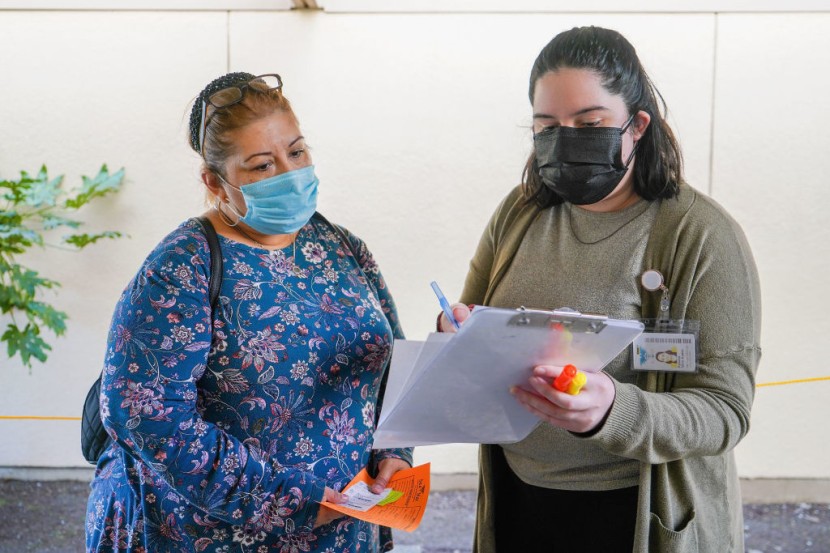
A recent health study disclosed rates of late-stage cervical cancer are rising in the United States, which some researchers suggest may be due to fewer young women getting tested for the deadly disease.
The number of women with advanced stages of the condition, which has a 17% five-year survival rate, is rising even though the overall rate of cervical cancer in the U.S. is down, NPR reported.
By examining data from 2001 to 2018, researchers at the University of California Los Angeles Department of Obstetrics and Gynecology sought to understand national trends in stage 4 cervical cancer. They discovered a 1.3% annual increase in advanced stages of the disease in a study that was published on Thursday in the International Journal of Gynecologic Cancer.
Cases increased most dramatically among white women in the South between the ages of 40 and 44, where they increased by 4.5% annually. Additionally, 1.55 per 100,000 Black women have late-stage cervical cancer, relative to 0.92 per 100,000 White women, according to research.
The group's most recent study was prompted by one that was published the previous year and that discovered a 3.39% annual increase in advanced cases among women aged 30 to 34, according to Dr. Alex Francoeur, a UCLA fourth-year OB-GYN resident.
Dr. Francoeur noted: "This is a disease that only 17% of patients will live past five years. So, if you're a 30-year-old who won't live past their 35th birthday, that's tragic."
Actress Lost the Fight Against Cervical Cancer
Actress Robyn Griggs was one of the most recent victims of cervical cancer. Robyn's official Facebook page confirmed the actress passed away in a statement dated August 15, per Distractify.
Read Also : Study Finds That More Than Half of Patients With Omicron Were Unaware of Their Infection
Us Magazine reported that Robyn obtained her stage IV cervical cancer diagnosis in August 2020 during a routine pap test. She created a GoFundMe page so that she could inform her friends and followers about her health and perhaps enlist their support to alleviate the financial burden of her medical expenses.
Robyn celebrated the first anniversary of her diagnosis on August 4, 2021. She was as optimistic about her recovery as she had been in the previous check-ins. She stated on her GoFundMe, "I'm still here but she's experiencing a "setback" but she "won't stop fighting." However, her body succumbed to cancer eventually.
How Can American Women Protect Themselves From Cervical Cancer?
The Centers for Disease Control and Prevention (CDC) advises women to start obtaining Pap tests at age 21 and follow-up exams every three years depending on their health history.
The test looks for precancers, which can be surgically removed if found. Over 90% of women with cervical cancer survive the disease after five years if it is found early enough.
The National Cancer Institute recommends that women undergo routine human papillomavirus (HPV) screening. More than 90% of all anal and cervical cancers, as well as a significant portion of other cancers, are associated with the virus.
According to Healthline, cervical cancer can be treated early on to prevent it from spreading to neighboring lymph nodes and distant organs. It's possible that until cancer has spread, a woman will not feel any symptoms.
The following are the early signs of cervical cancer:
- unusual vaginal discharge
- vaginal bleeding
- bleeding after intercourse
- pain during intercourse
- pelvic pain
If a woman is experiencing any of the following symptoms, she should immediately consult a doctor.
© 2026 HNGN, All rights reserved. Do not reproduce without permission.








